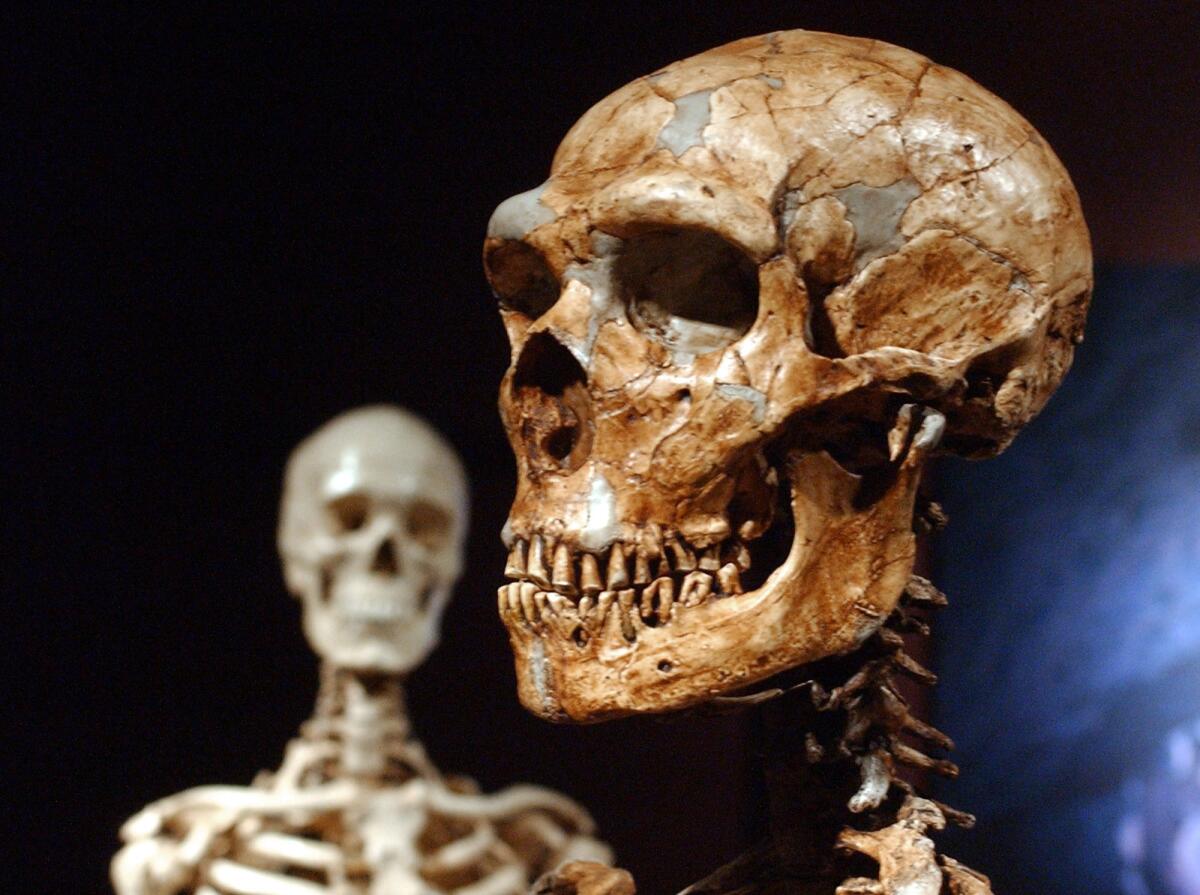Neanderthals: Smarter than we thought?

- Share via
They’ve been portrayed as the original nitwits -- stone-age oafs whose limited mental capacity fated them to extinction as wily Homo sapiens entered Europe and out-competed them for precious resources.
But could it be that our robust cousins the Neanderthals have gotten a bad rap? Were they really that slow?
In a paper published recently in the journal PLOS ONE, two paleoanthropologists argue that there is little archaeological evidence to support the idea that Homo neanderthalensis disappeared due to a lack of brain power.
“The conventional view of Neanderthals is not true,” said coauthor Paolo Villa, a researcher at the University of Colorado, Boulder.
Villa and colleague Wil Roebroeks, a professor of paleolithic archeology at Leiden University in the Netherlands, argue that Neanderthals disappeared due to a variety of genetic and population factors, including an increase in male sterility due to interbreeding with Homo sapiens, as well as “genetic swamping and assimilation” by the same.
After thriving for roughly 300,000 years, Neanderthals vanished from the archaeological record roughly 40,000 years ago -- about the same time anatomically modern humans entered Europe.
Researchers have argued for decades that Neanderthals just couldn’t compete with their new neighbors. Modern humans, they say, had a greater capacity for innovation, more complex forms of communication, improved hunting strategies, better weapons, superior planning, greater diet diversity, more memory capacity and a larger population.
But the study authors say that many of those ideas were formed before the evidence was in. They say that recent research and discoveries have upended those hypotheses.
For example, Neanderthals are now believed to have herded prey like mammoths and elephants over cliffs, or bison into sink holes -- tasks that seemingly require great planning and communication.
“Neanderthals were by all means accomplished large game hunters,” the authors wrote. “In contrast to prevailing ideas, their diet was not restricted to medium and large size herbivores only. Several sites document a broader diet, including aquatic foods, small fast game (birds, rabbits) as well as plant resources.”
When experts argue that modern humans were mentally superior to Neanderthals, they often point to our ancestor’s ability to use fire and a variety of substances to fix pointed stones, bones or metals to spear shafts, a process known as hafting. This ability, they say, requires abstract reasoning, a hallmark of modern cognition.
But the study authors say that there is now evidence that Neanderthals used pitch to fashion their own weapons. Pitch, they write, must be processed from tree bark in an environment without oxygen. While it’s possible they did this by burying the ingredients beneath a burning fire, it remains a mystery exactly how they accomplished this feat, authors say.
“The evidence of pitch production ... by European Neanderthals shows that those “elevated cognitive abilities” were not the exclusive domain of modern humans,” the authors wrote.







